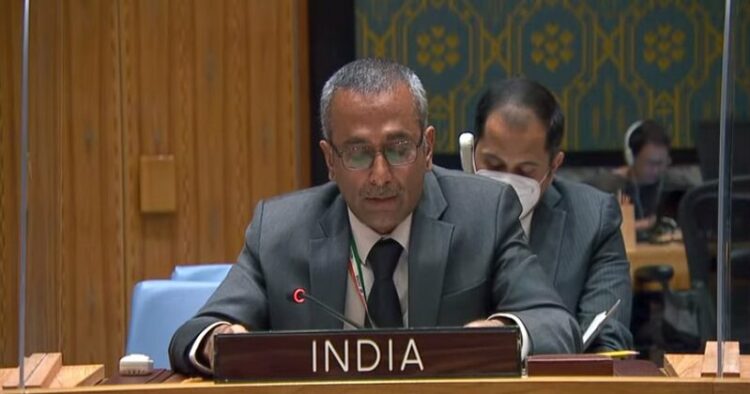India’s Charge d’affairs to the United Nations, R Ravindra highlighted the importance of the African Continent to the international community on the 9th of August 2022 (Monday) in a UN briefing. He welcomed Africa as a new player in the global competitive international order. The crux of his talk was mainly focused on capacity and peacebuilding in Africa. He compared the present situation of Africa with the last decade wherein he commented that Africa is comparatively peaceful now despite the challenges posed by the pandemic.
Historically, most nations of the African continent were classified as “Third World” as per World Systems Theory by Immanuel Kant. European Colonial powers had numerous colonies in Africa. Post-independence, many African countries have become proxy battlegrounds for major powers of the globe.
Africa has a very enormous potential in terms of minerals, energy and resources both human and natural. Huge oilfields and natural gas are present in Libya and Algeria. Most of North Africa is home to regional forums such as Arab League and African Union. Countries such as Kenya and Tanzania and Congo are known for their national parks and thriving wildlife sanctuaries. Africa has been a melting pot and hub of numerous cultural diversities.
However, the stability and peace of the region are very fragile and volatile. Piracy is rampant in the Gulf of Aden, and Ethiopia and Somalia are heavily battered by the civil war. Sudan and South Sudan are home to numerous terrorist organisations namely the Islamic State, and Al-Qaida. Boko Haram is active in Eastern Africa (mostly Nigeria). Illegal Trafficking (arms/humans) along with organised crime is highly prevalent. Corruption is found to be deep-rooted in the veins of the officials.
Climate Change has a severe impact on livelihoods and crop yields and it aggravates the loss of biodiversity. Hunger and malnutrition are other challenges for Africa. In 2020, 281.6 people suffer from hunger. Diseases like Ebola, and Kalazar are widely spread. More than 11000 people have died due to disease and without proper medicinal treatment. The Covid-19 pandemic has further worsened the situation. Some African countries have been highly affected by dictatorship regimes (Eg: Zaire and Libya). Egypt in particular is known for its coups and witnessed repeated rise and fall of the governments and assassinations.
All these issues are prominent and cannot be ignored and overlooked. Much work is yet to be done. But This does not mean that Africa can’t improve. South Sudan achieved independence in the year 2011 and joined the African Union. Botswana, Ghana and Namibia are highly stable and democratic now than before. Africa has also progressed ahead in gender equality, with many women having seats and positions in the parliament. Thirty-four countries in Africa have improved their governance performance. United Nations along with various leading nations have sent peacekeeping forces to the war-torn nations in Africa. “Bharat” (India) is one of them).
Many African nations along with India and Japan have developed a project known as Asia-Africa Growth Corridor. It links Africa to India and from India to South East Asian Nations via a sea corridor. Moreover, it is important and noteworthy that China has been expanding its footprint through the OBOR (One Belt One Road) in Africa. Around 42 nations have already become signatories to the Belt and Road Initiative (BRI). These African countries are ignorant and unaware of the fact that taking the path with China will end in nothing but a debt trap. There is a high probability that poor African countries will become bankrupt soon if the Chinese expansionist threat is not contained.




















Comments